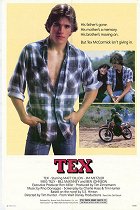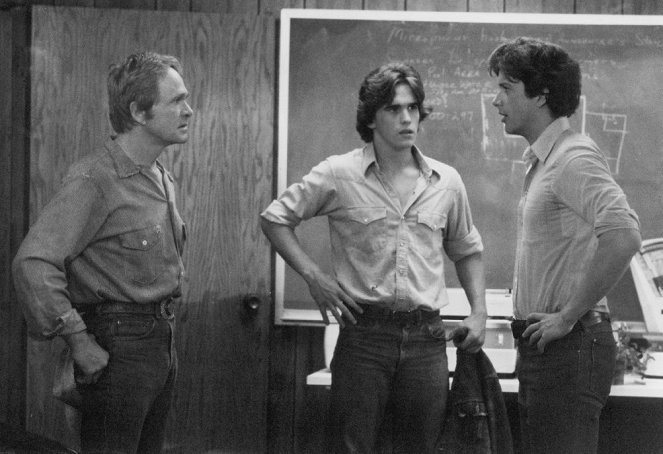Directed by:
Tim HunterCinematography:
Ric WaiteComposer:
Pino DonaggioCast:
Matt Dillon, Jim Metzler, Meg Tilly, Bill McKinney, Frances Lee McCain, Ben Johnson, Emilio Estevez, Željko Ivanek, Toyota, Pamela Ludwig, Tom Virtue (more)Plots(1)
For Tex McCormick (Matt Dillon) and older brother Mason, just growing up is the ultimate adventure, especially when Dad is always gone, Mom has passed on, and life is dealing you one challenge after another. Times are so tough, brother Mason has to sell off Tex's favorite horse just to put food on the table. So begins the small-town saga of one teen's straightforward struggle to find friendship, love, and family -- and learning that growing up is about never giving up. (official distributor synopsis)
(more)Reviews (1)
Disney brought out this forgotten depiction of the emotional turmoil of adolescence a few years before empathetic portrayals of teenagers became one of the powerful trends of 1980s pop culture. At that time, Disney was going through its so-called Dark Age, when, thanks to the progressive leadership of Ron W. Miller, it briefly set out to make more serious and mature films. Characteristically for the Disney juggernaut, this period is now ignored and shunned because it does not fit the corporate line of the illusion of innocence and harmony that the studio massively reinforced in the 1990s. In this context, Tex is surprising with its openness and understanding of adolescence and its ambiguous aspects, which are further enhanced by the film’s rural Southern setting. It is quite possibly the first, and probably last, film to bear the Walt Disney Studios logo, where sex, alcohol and drugs, as well as the emotional swings of teenagers and conflicts with adults are discussed without hesitation. (In order for films to continue to be made under the wing of Disney producers, Miller pushed through the establishment of the subsidiary Touchstone Pictures.) Unlike later teen films of the 1980s, Tex doesn’t seek viewers’ acceptance through pop motifs, humour and genre elements, but rather remains in the realm of social drama, though it does help escalate the protagonist’s situation by constantly placing obstacles in front of him. Director and co-screenwriter Tim Hunter later returned to the themes of growing up in the putrid lethargy of a small town and the desperate effort to leave it behind at least for a moment in the much tenser and more disturbing River’s Edge.
()

